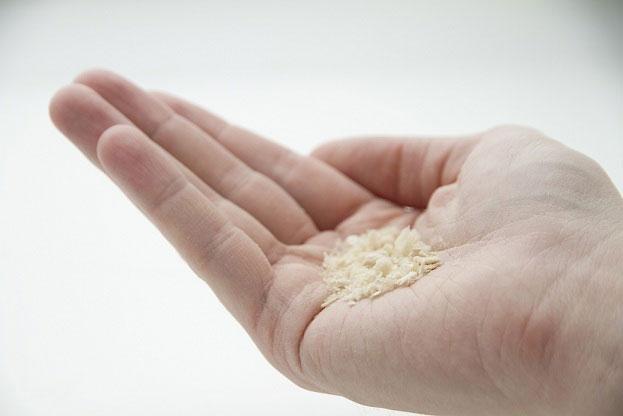Believe it: A startup is producing proteins from air and electricity
Solar Food, a Finnish startup, plans to produce edible protein from air and electricity. The company announced that it is cooperating with the European Space Agency ESA to produce and supply food for future space flights. Solar Food has previously received 2 million euros in funding and plans to start commercializing products by 2021.

Protein powder.
The production process of Solar Foods is derived from the research of Finland VTT Technical Research Center and Lappeenranta University of Technology (LUT). The main components of this Finnish startup production process include air and electricity.
The production process begins with the generation of hydrogen from water electrolysis. Later, the company combined hydrogen with carbon dioxide and some minerals to feed bacteria that make proteins. Eventually these bacteria are heat-treated to produce protein powders.
"Our goal is to develop protein into a high quality product. The product will have an environmental impact that is 10 to 100 times smaller than existing meat or substitute products on the market. " , Pasi Vainikk, Solar Food's CEO, said.
Protein derived from Solar Foods is vegan and does not depend on animals or plants during production. This separation from traditional agriculture not only has the ability to change what you eat in the future, but also has the ability to change what people can eat during flights into space.

Pasi Vainikk - CEO of Solar Food.
The small bioreactor of this startup is made of steel that could become the first version of the popular copy machine seen on Star Trek. Similar to copying machines - machines capable of producing food without much material, Solar Food's bioreactors produce edible proteins that can feed the crew or colonists on the Stars. Fire.
"Mars' environmental conditions are very different from Earth's, but it still has sunshine and a large amount of carbon dioxide in the atmosphere. This pioneering Solar Foods technology allows the production of new food right away. both in enclosed spaces, so we believe that this new technology can use the components available in Mars, " said Kimmo Isbjornssund, director of the Finnish ESA Business Incubator Center.
Solar Foods wants to start producing commercial protein in 2021. Solar Foods' environmentally friendly production process does not depend on weather, land or other natural resources. Production costs are low and expandable in the future. To produce more protein, you only need a larger bio-tank and additional bacteria.
This is not the only startup interested in creating proteins without animals or plants. Recently, Perfect Day - a startup based in Silicon Valley (USA), also followed this trend when introducing artificial cow's milk products without raising cows . Milk is made from water, fatty acids and synthetic proteins from special probiotics, similar in quality and flavor to natural cow's milk.

Ryan Pandya (left) and Perumal Gandhi (right) - two founders of Perfect Day.
By creating artificial cow's milk, the startup expects to reduce costs for the dairy industry, which consumes a lot of resources for grass and labor farms . In addition, artificial milk also ensures safety. Food hygiene when there are no bacteria commonly found in natural milk such as E. Coli, Salmonella .
However, high production costs are a common challenge for enterprises pursuing artificial food technology. On the other hand, businesses in this area also face criticism about the risk of causing unemployment in the livestock industry. Some experts also question the ability to completely synthesize irreplaceable proteins in meat, milk .
- Japan supports the development of technology to produce electricity from the universe
- Producing wind power and solar power is cheaper than coal
- Producing electricity with snails
- Science is about to generate electricity from garbage that no one dares to recycle
- Future electricity production technologies
- Bacterial Bacteria
- Do you believe it? Tomatoes can turn into electricity
- Debt, the Spanish government taxed the sun
- Producing electricity from chicken manure
- Bacteria are capable of generating electricity
- The concrete roof creates electricity from the sun
- Producing electricity on thousands of kilometers
 The US company is about to build a supersonic passenger plane of 6,000km / h
The US company is about to build a supersonic passenger plane of 6,000km / h Japan develops avatar robot as in fiction film
Japan develops avatar robot as in fiction film Australia tested the world's first mango picking robot
Australia tested the world's first mango picking robot America develops technology to separate water from animal waste
America develops technology to separate water from animal waste